In accordance with the Council decision the Republic of Slovenia abolished border checks at internal Schengen land and sea borders on 21 December 2007, which was followed by the lifting of border controls at internal air borders on 30 March 2008.
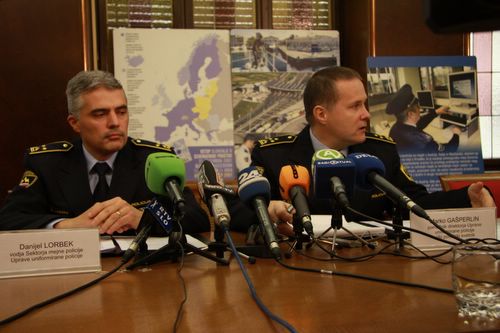
On the occasion of the first anniversary of Slovenia's joining the Schengen area, Marko Gašperlin, Assistant Director of the Uniformed Police Directorate, and Danijel Lorbek, Head of Border Police Division of the Uniformed Police Directorate, on 22 December 2008 presented the work results and findings of the Police during this period in carrying our the surveillance of the state border both at the actual border and inland, as well as in detecting illegal migrants.
The preparations were conducted in accordance with the Schengen Action Plan, which was adopted by the Government of the Republic of Slovenia and which provided the temporal and substantive frameworks for the necessary activities. In the legislative area, legislative and regulatory provisions concerning state border control, foreigners, criminal procedures and personal data protection were amended. Bilateral agreements with the neighbouring countries were concluded, enabling different kinds of cross-border police cooperation (e.g. information exchange, cross-border surveillance and hot pursuit) and directly deriving from the Convention Implementing the Schengen Agreement.
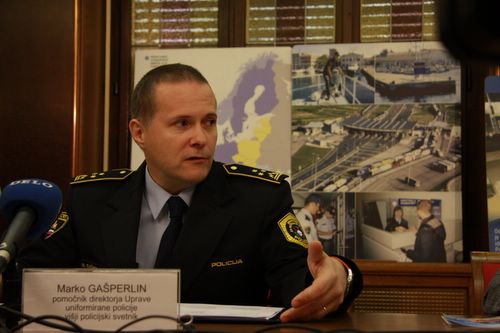
The number of police officers for external border control gradually increased, and the infrastructure at border crossing points improved as well as the special equipment for border control and surveillance. These activities were co-financed by the EU. Preparations of police officers took the shape of intensive training in acquis communautaire with assistance from experts from Austria, Germany and Spain. Slovenian police officers gained knowledge on the implementation of the Schengen acquis by means of excursions to other Member States.
After joining the Schengen area, Slovenia held the Presidency of the EU Council and devoted a great deal of attention in the field of justice and home affairs to discussing and forming conclusions on the future systems of Schengen evaluations and re-evaluations of "old" Member States. Also during the Slovenian presidency the evaluation of Switzerland was underway and preparations for the evaluation of Bulgaria and Rumania started.
After a year of full implementation of the Schengen acquis the Police are pleased to note that the preparations were successful and solutions in the legislative, organisational and HR areas proved to be correct and efficient. It also needs to be pointed out that the lifting of border controls did not lead to a deterioration of general security situation, which is reflected in the measures carried out by the Police.
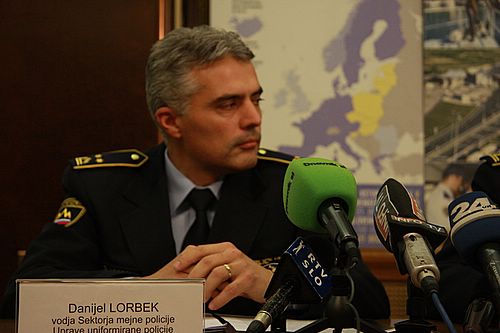
At the external border, a negative trend of illegal crossings of the border was recorded for the forth year in a row. It was especially pronounced after joining the Schengen area, as in the first eleven months of 2008, 1,089 persons were processed for illegal crossing of the border, which is 53.6% less than in the same period of the year before. Of those arrested, the majority were Serbian, Croatian, Turkish, Kosovo and BiH nationals. The European Agency for the Management of Operational Cooperation at the External Borders (Frontex) has noted that the main flows of illegal migrations in the greater Western Balkan region moved towards Greece and Hungary and we believe that one of the main reasons for this is good work of the Slovenian police.

In the framework of Frontex there are mixed patrols active at borders.
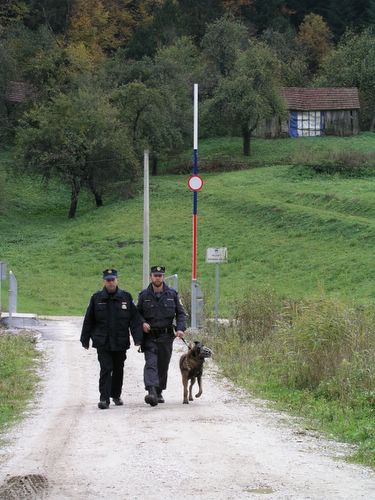
At border crossings Slovenian police officers refused entry to 7,368 persons for non-compliance with conditions for entry into the Schengen area (compared to 6,524 in the same period of the year before). Most of them did not have the necessary documents or permits for entry.
The increase in the number of refused entry cases is mostly a result of hits in the Schengen Information System. We expect that the percentage of refused entries due to entry ban will increase even further after Switzerland joins the Schengen area. We are also very successful in detecting stolen vehicles and forged documents with 170 (139) vehicles and 703 (661) forged documents having been seized at border crossing points.
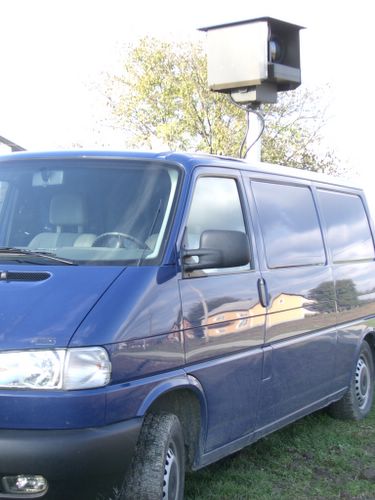
"Schengenbus"
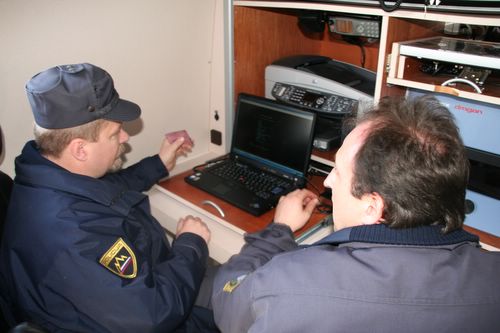
Slovenia started using the Schengen Information System data on 1 September 2007. Since then we have carried out over 21 million checks and had more than 8000 hits.
In the first eleven months of this year we had a total of 6,296 hits, of which 3,705 concerned banned entry into the Schengen area, 116 arrest of wanted persons, 71 missing persons were found, residence addresses were found for 691 persons for the needs of judicial authorities, 959 objects (vehicles, documents, weapons and banknotes) were seized.
During the same period there were 207 hits based on Slovenian authorities' entries into the Schengen Information System; 23 persons were arrested on the basis of European arrest warrants, 86 persons were located for the needs of the judicial authorities, one missing person was traced and 97 objects seized.
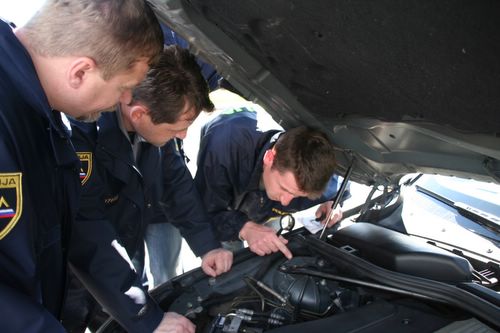
The establishment of special police stations for compensatory measures with the basic task of detecting and preventing illegal migrations and other forms of cross-border crime proved to be very successful and effective.
In the eleven months of 2008 these units carried out over 2,300 measures in the framework of alien legislation and 150 seizures of stolen vehicles. The measures against foreigners were mostly prompted by overstaying the period of legal stay in the Schengen area and entry at internal borders without appropriate documents and were most frequently used against nationals of Western Balkan countries, Ukraine and Moldova. Of the seized vehicles the prevailing makes are VW, Audi and BMW, and vehicles are most frequently stolen in Italy and Germany.
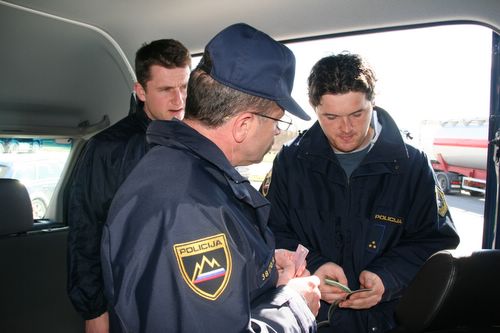
The majority of measures taken by officers of police stations for compensatory measures were taken on the transport axis between Italy and Hungary, in both directions.
In 2009 the Slovenian police will continue carrying out effective external border control and performing compensatory measures in the interior. Police officer training in the field of legislation, as well as specialist skills in the use of special equipment, detection of forged documents and stolen vehicles. will be continued. Slovenian police officers also learn through participation in operational activities and courses coordinated by Frontex.
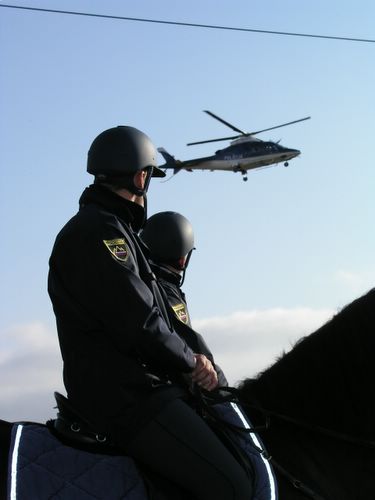
At the first anniversary of joining the Schengen area we can say that Slovenia carries out external border control effectively and by means of compensatory measures we manage to prevent and detect illegal migration and cross-border crime across internal borders.
We believe that the security situation in Slovenia has not deteriorated as a result of Slovenia's joining the Schengen area and that this part of the EU external border is one of the safest overall. The fundamental goal remains the same - to provide the highest standard of the safety of persons and property, not only in our country but also in the entire Schengen area.

